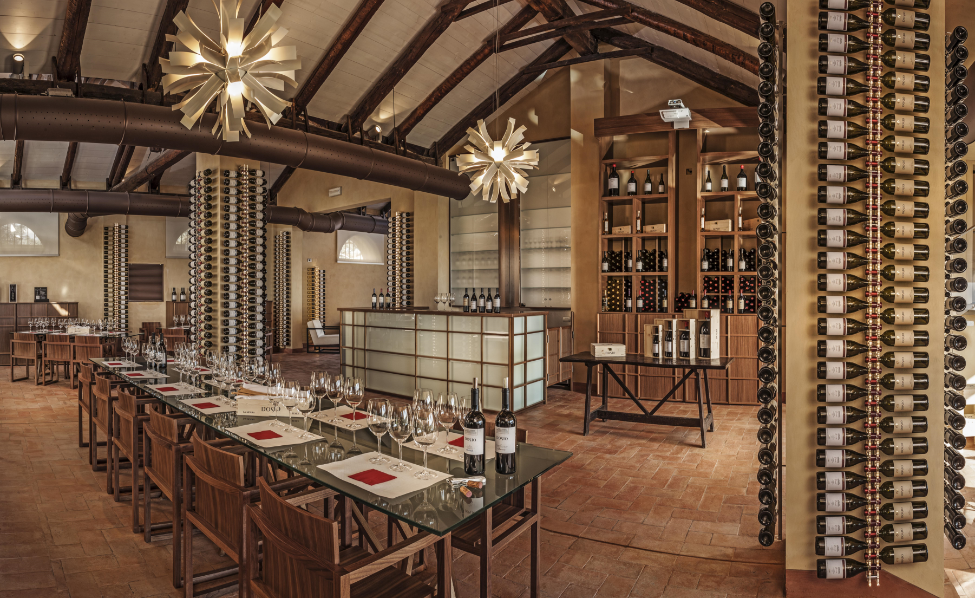Minimal intervention
to respect the grapes
The passion we devote to our work in the vineyard
facilitates and minimises operations in the winery
A great wine is the result of 365 days of work.
So every day our goal is to enhance and sustain the resources of the environment
and the benefits of the local microclimate, so that intervention is kept to a minimum
once the grapes reach the winery.
Pressing
First of all, the picked grapes are placed in 20 kg boxes and taken immediately to the winery, ideally located at the centre of the 10 hectare estate. All this ensures that the fruit arrives very quickly to the cellar, with no long journeys on farm machinery along tarmac roads. This conserves the integrity of the individual grapes, which are still whole when the winemaking process begins.
Most importantly, the risk of fermentation starting too early is avoided, so no additives will be needed to prevent it.
Finally, after passing on the conveyor belt for a manual inspection to eliminate any imperfect bunches, the grapes are destalked and pressed.
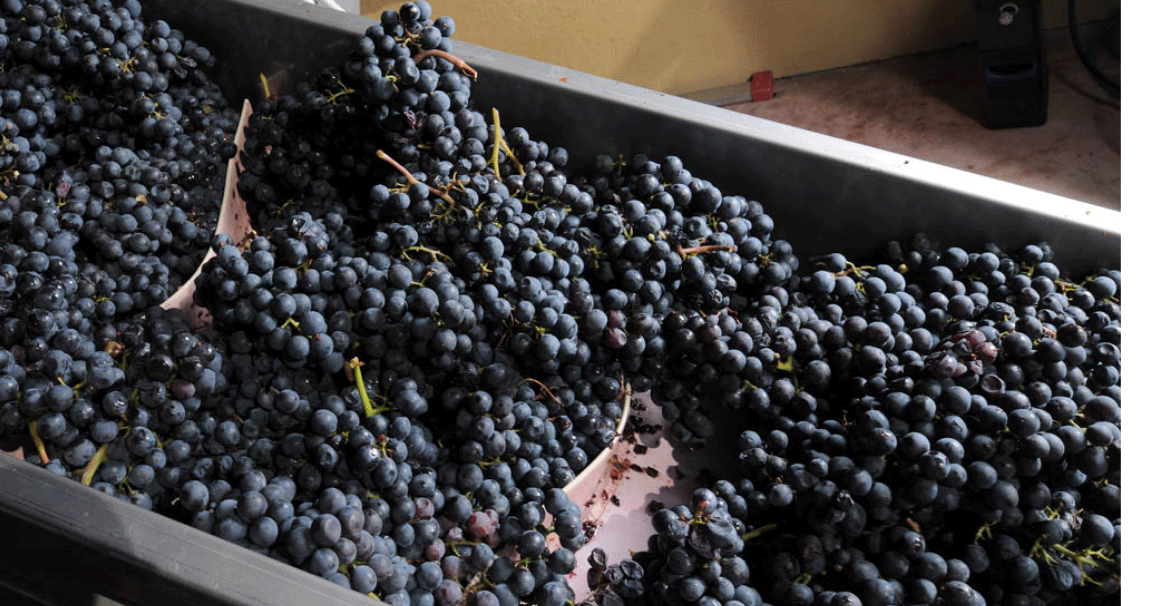

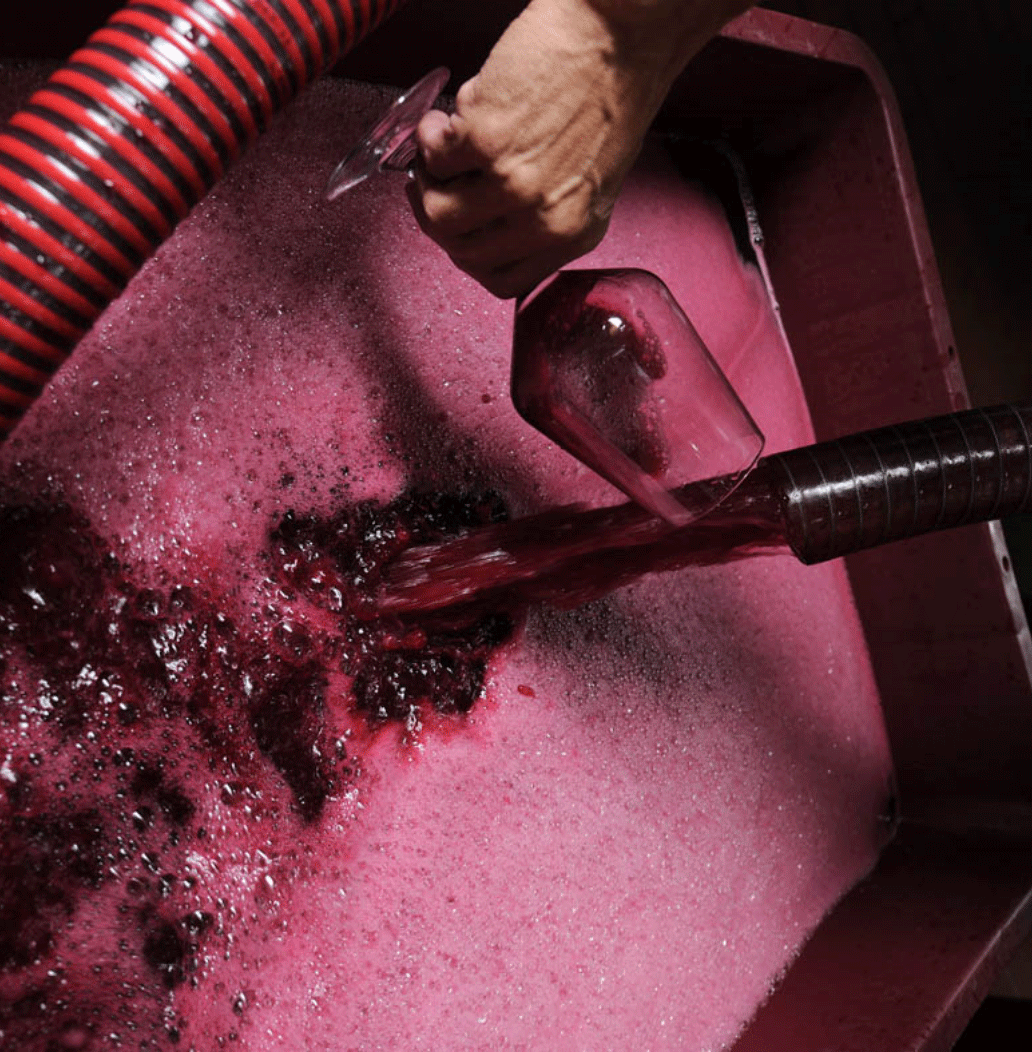
Vinification
First of all, the process to turn the grapes into wine now begins.
Consequently, the maceration and fermentation of the fruit takes from a few days to a month, depending on the type of grape and its ripeness.
During this stage, the juice will gradually acquire colour, as the grapeskins release colour, tannins and polyphenols in varying quantities, depending on the length of the process.
Subsequently, once the maceration stage has finished, the liquid, which can now be called wine, is separated from the solid material; the skins are delicately pressed once again to obtain as much
liquid as possible.
Last but not least, the skin residue has important properties and can be used in the production of food and cosmetics. In particular, the skins from the Fossati Cru are taken to a distillery for the production of our grappa from Nebbiolo grapes.
Ageing
Lastly, the wine is kept in steel barrels until the following spring, when, depending on the variety, it may be bottled (Arneis or Rosé) or left to age in wooden barrels for varying lengths of time: Barolo as required by regulations, the other wines in accordance with our company philosophy.
In conclusion, our wines age in small barrels (French barriques), 500 litre tonneaux or large Slavonian oak casks, where our Barolo wines are left for the long periods prescribed by the regulations.
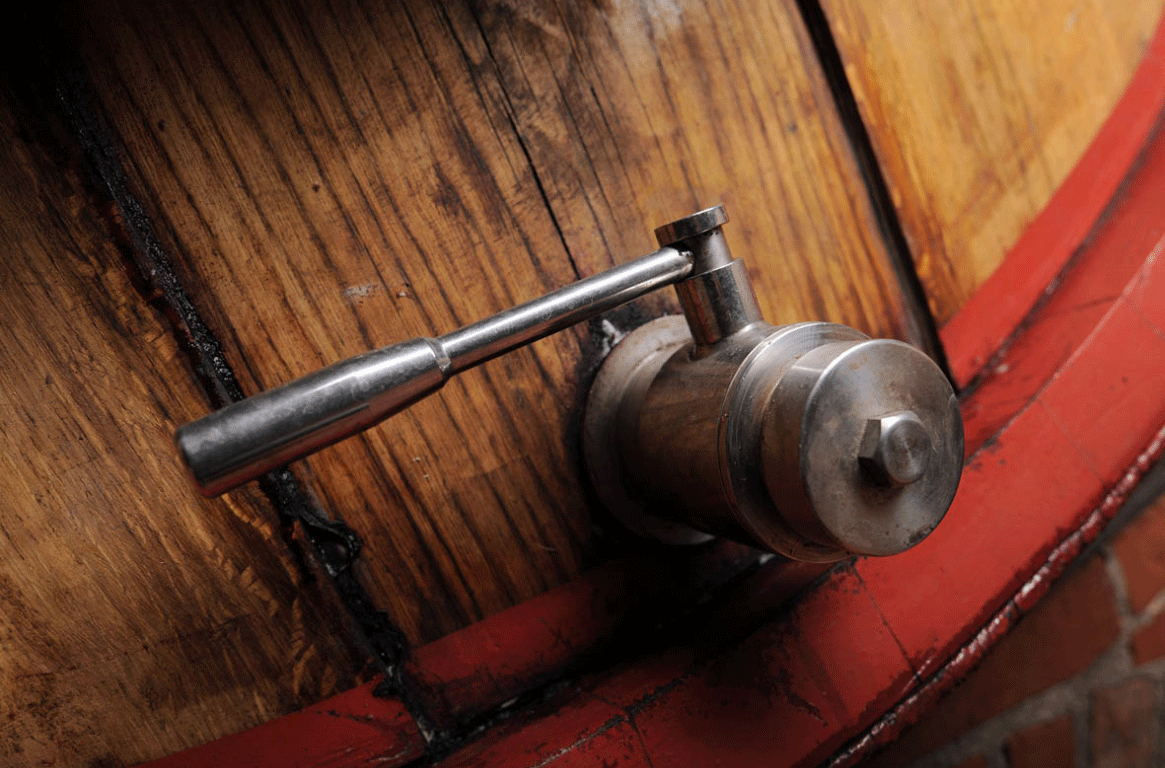
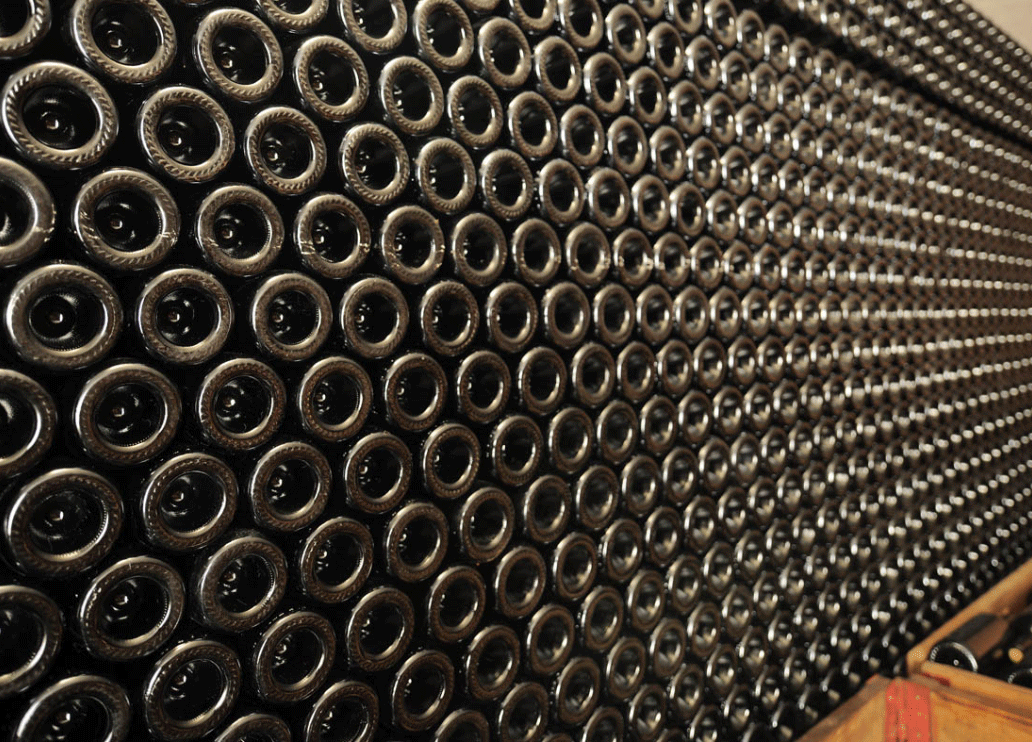
Bottling
In the spring after the harvest, the Arneis, Dolcetto and Rosé can be bottled. Once the ageing process in oak is complete, the other wines are transferred back to steel barrels, ready to be bottled.
Last but not least, the bottles are stored in the underground cellar under controlled humidity and temperature conditions. They are then taken to the warehouse only to be packed for shipping and delivery.
